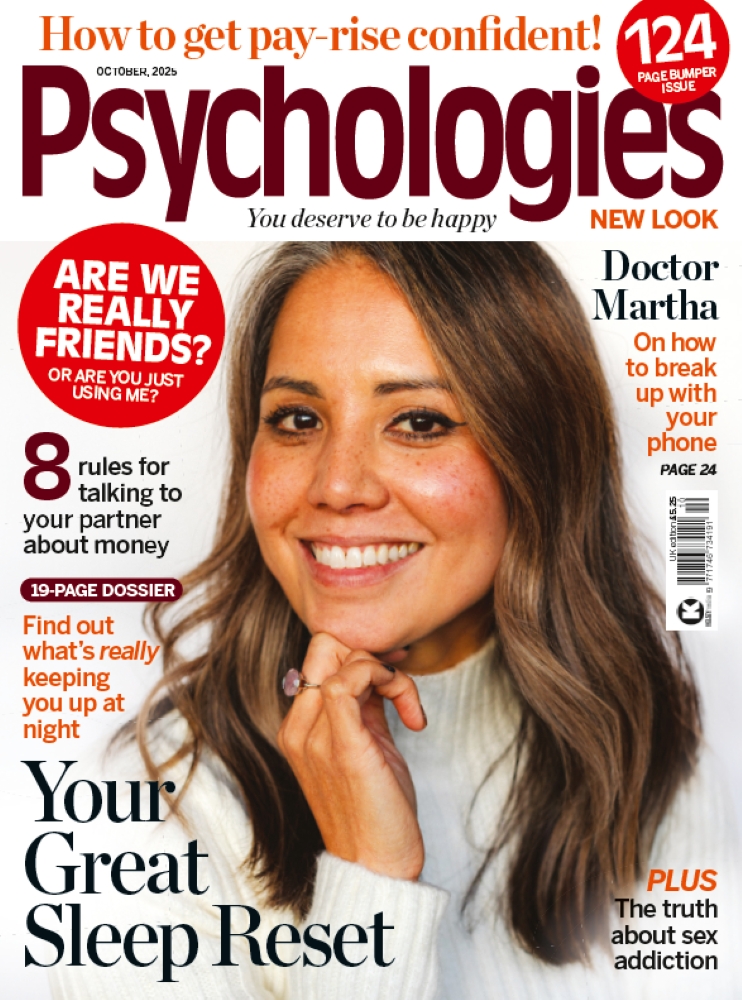How to be more compassionate to yourself
Far from being a sign of weakness, self-compassion is the only way to be truly effective. Here's how to generate more of it

Why can’t I be kinder to myself? It’s a question many of us have asked. For while there often seems to be a lot of kindness in the world (at least when it comes to kindness to others) compassion for ourselves can be in short supply.
Although we may find it easy to tolerate a friend’s failings, we can be scathing about our own. That’s certainly the case for some of my coaching clients – particularly those working in competitive sectors such as the media – who often struggle to give to themselves the care and empathy they’d gladly bestow on loved-ones.
This is despite the fact compassion has huge psychological and health benefits. A recent study by the Universities of Oxford and Exeter found taking part in self-compassion exercises calms the heart rate, switching off the body’s threat response.
So why can’t we be more compassionate to ourselves? Well, the way we tend to phrase that question gives a clue to the answer. “Why can’t I” implies a degree of self-criticism – as in: “Why on Earth can’t I just get it right!”
This reflects a strain of thought that runs deep in Western culture. To go easy on ourselves is to rest on our laurels, which implies weakness. Society teaches us to be our own harshest critic. We buy into that assumption, believing we must drive ourselves hard and ruthlessly now, and only once we have eventually succeeded will we get to sit back and bask in our achievements.
The problem is that unless you practise self-compassion, you may never believe you have done enough. Or any sense of achievement you do feel will be contingent on on external circumstances such as whether you feel you’re better than somebody else, rather than a deep-seated respect and empathy for yourself.
When we do practise self-compassion, by contrast, our many failures become less painful and we develop a true understanding of the needs of others. This allows us to far more effective at whatever we turn our minds to. So rather than self-kindness making us weak or indulgent, the opposite is true – it is the only way to be truly effective.
Compassion literally means to ‘suffer with’ and involves the knowledge that all human beings experience pain and the desire to alleviate it. It’s not the same as self-pity, which tends to emphasise egocentric feelings of separation from others and exaggerate the extent of personal suffering, according to University of Texas professor Dr Kristin Neff.
Source: Kristin Neff
In some cases, a person may be able to feel compassion for themselves but not others. They would not be much fun to be around as it would literally be all about them.
Then there are those who lack compassion for themselves AND for others. For them, the world is a harsh, uncaring place – and it will show. They may bully others or neglect themselves.
Most commonly, however, we show greater compassion to others than ourselves. This can lead to burnout as we struggle to accept we deserve a break. Even when something happens that’s beyond our control – like a serious illness – we struggle to show ourselves the same kindness and understanding we’d give to a friend.
So what is the alternative? It’s to develop our ability to show compassion to ourselves AND to other people. When we embrace our own suffering as well as others’ we understand that everyone feels pain. We feel more connected to those around us, improving our relationships. And we can be courageous when we do not have an ‘inner bully’ pointing out our shortcomings.
So how can we create feelings of self-compassion? Here are a couple of techniques my coaching clients have found helpful:
Write a self-compassionate journal
Jot down four things every night that are encouraging and show self-kindness.
For example, you could write to yourself: “That meeting today was difficult for you but you gave it your best shot – I’m proud of you.”
Or it could be more general and focus on your positive qualities: “You’re a determined person who has overcome a lot of challenges.”
Talk to yourself as you would a small child
When a child is hurt we naturally show compassion. We want to do everything we can to make them feel better, and we express this through a soothing tone and encouraging choice of words. Next time you’re feeling pain try imagining you are the child and talking to yourself through the voice of the comforting adult.
Consciously access head, heart and body
If a stressful situation arises, try to notice in the present moment without judgment:
What you’re physically feeling (eg tight chest)
Your emotions (eg anger, frustration)
Your thoughts (eg why is this happening to me?)
Then remind yourself that everyone feels this way sometimes and that it’s OK. You are connected to all the others in the world who are suffering. By developing self-compassion, we can tap into our common humanity.
Joel Cooper
Business and personal coach
What do you really want from life and how can you get it? As a trained business and personal coach, I can help you find the answers. Whether you are looking to build your confidence, have a big dream but are unsure of the next step or are seeking ways to juggle work and quality family time, I offer a tailored package that will help you make your personal vision a reality. I have 15 years' experience of working in the national media and of working with parents of children with autism. My approach is to focus on you as a complete person - not just your current role, such as a job or parenthood. We will meet regularly, face-to-face or by phone, and I will support you, challenge you and provide you with a framework to make lasting change. We will explore how you view the world, what you truly value and any patterns of thinking that are holding you back. A member of the International Coach Federation, I have completed the Barefoot Coaching course in business and personal coaching. I use a variety of techniques, such as Transactional Analysis and Neuro-linguistic Programming, to help you bring out the best in yourself. Most of all, I believe unconditionally in my clients' power to improve their lives. Are you ready to give it a try?



